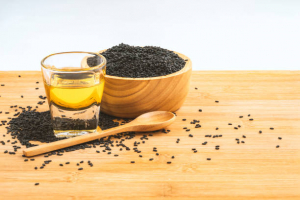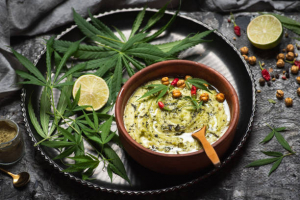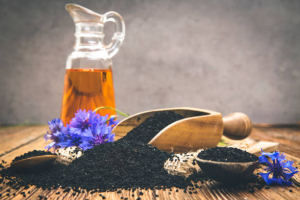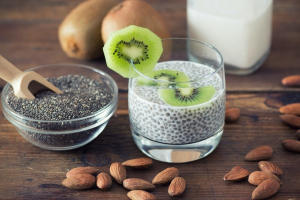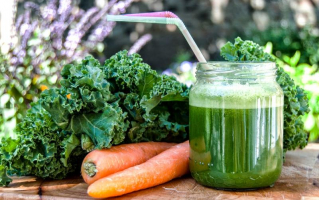Top 6 Health Benefits of Poppy Seeds
Since ancient times, people have employed the poppy plant as a traditional cure. Its blooms, which are native to the Eastern Mediterranean, come in a variety ... read more...of hues, mostly white and yellow. Depending on where they are grown, these blossoms yield tiny, spherical, blue, black, or light to dark gray seeds. Poppy seeds are utilized in traditional foods and baked items all throughout the world. The seeds and their oil are reported to provide a number of health advantages, including the ability to alleviate asthma and sleeplessness as well as headaches and coughs. Let's discover the best health benefit of poppy seeds.
-
Like most seeds, poppy seeds are rich in fiber, plant fats, and various other nutrients. One tablespoon (9 grams) provides:
- Calories: 46
- Protein: 1.6 grams
- Fat: 3.7 grams
- Carbs: 2.5 grams
- Fiber: 1.7 grams
- Manganese: 26% of the Daily Value (DV)
- Copper: 16% of the DV
- Calcium: 10% of the DV
- Magnesium: 7% of the DV
- Phosphorus: 6% of the DV
- Zinc: 6% of the DV
- Thiamine: 6% of the DV
- Iron: 5% of the DV
Manganese is a trace element that is particularly abundant in poppy seeds and is crucial for the health of bones and blood coagulation. This mineral also aids in the utilization of carbohydrates, lipids, and amino acids by your body. They also contain a lot of copper, a mineral important for the production of connective tissue and the transportation of iron. Poppyseed oil, which is particularly high in omega-6 and omega-9 fats, may be made from the seeds using cold pressing. Alpha-linolenic acid, an important omega-3 lipid, is also present in modest levels (ALA). However, high omega-6 versus omega-3 diets may be associated with a higher risk of inflammation and illness. As a result, you should avoid regularly consuming substantial amounts of poppyseed oil or other omega-6-rich oils.
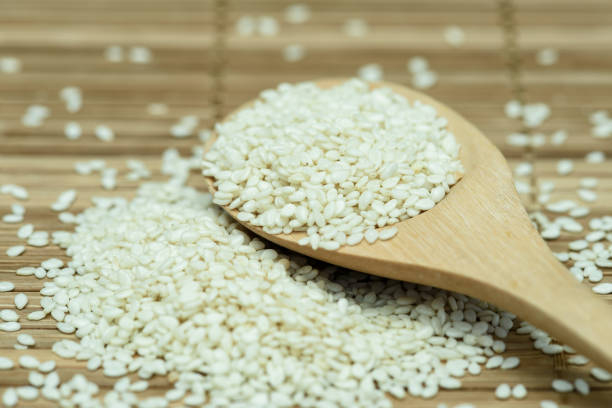
Rich in nutrients and antioxidants 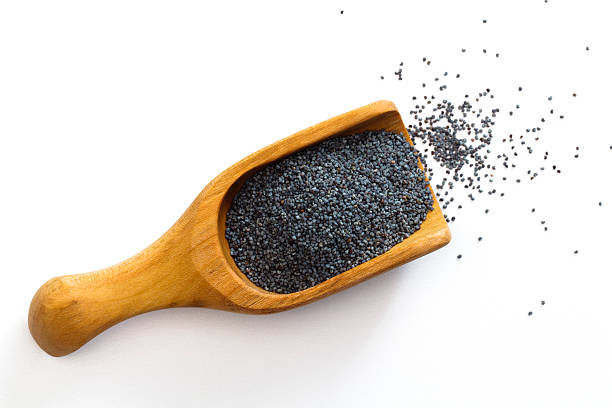
Rich in nutrients and antioxidants -
Poppy seeds are little powerhouses of nutrients, containing calcium, phosphorus, iron, and zinc. The oilseeds contain 4% of your daily required intake of calcium and phosphorus in just one teaspoon! Adults require both of these compounds on a regular basis to help prevent bone-weakening conditions like osteoporosis. Together, these two substances make the mineral that is utilized to construct bones. Additionally, poppy seeds are a good source of iron, which helps the body produce proteins and neurotransmitters and improves immunity by transporting oxygen throughout the body. For men, a teaspoon of poppy seeds offers roughly 4% of the daily required iron intake, while for women, just 2%.
An essential mineral called zinc supports the formation of new cells and the structure of proteins. Although you don't need a lot of it, you nevertheless need a small bit every day to achieve your daily suggested consumption because the body cannot store it. This crucial mineral promotes brain growth and immune system support. For males and women, a teaspoon of poppy seeds offers 2% and 3% of the daily amounts, respectively. Additionally, poppy seeds are a fantastic source of copper, a mineral that is necessary for the body to make red blood cells. In turn, it maintains the integrity of your connective tissues and can help to build bones. One tablespoon of poppy seeds will provide you with just over 140 micrograms of copper, which is around 10% to 15% of your daily recommended intake.

Good Source Of Minerals 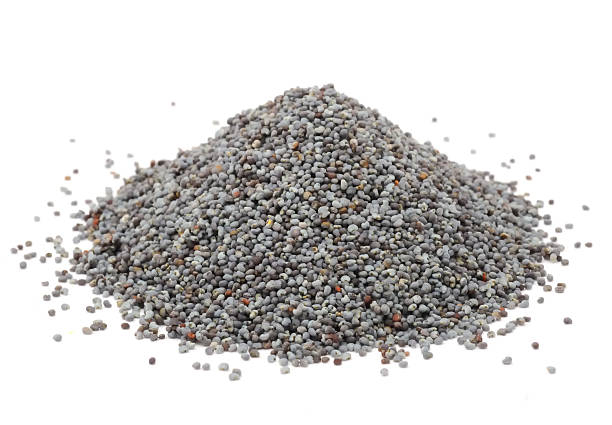
Good Source Of Minerals -
B-complex vitamins, such as thiamin, pyridoxine, niacin, pantothenic acid, riboflavin, and folic acid, are present in poppy seeds. The metabolic process depends heavily on B vitamins, particularly when metabolizing fat and carbs. It's important to keep in mind that while they will contribute to your overall intake, you still need to make sure you're getting enough from other sources as well because they are so small and you probably wouldn't eat more than a few tablespoons in a day. As a result, while they will help you meet your overall intake, you still need to make sure you're getting enough from other sources as well.
Thiamin is a water-soluble B vitamin that supports the health of the heart, muscles, and neurological system as well as helping cells make energy from carbohydrates. A sufficient intake of pyridoxine aids in the conversion of food into glucose, which gives off energy and regulates the blood levels of homocysteine, an amino acid that may be linked to heart disease. Niacin is crucial for general health, and increased amounts of the B vitamin may cut cardiovascular risks and lower cholesterol levels. Your body's ability to correctly use lipids, proteins, and carbs is improved by pantothenic acid. Since riboflavin is water soluble and not kept by the body, you must resupply it daily. It helps the body make red blood cells and release energy from carbs in conjunction with other B vitamins.

Source of b-complex vitamins 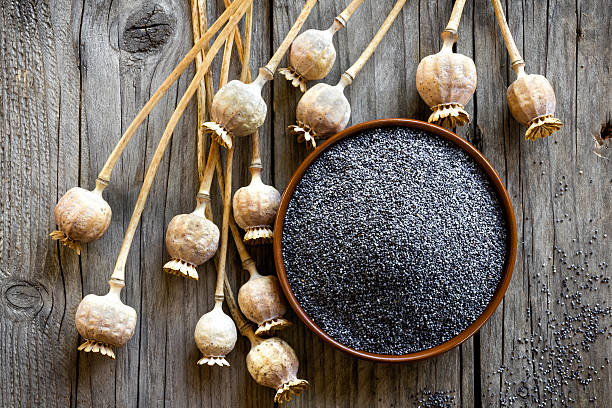
Source of b-complex vitamins -
Morphine, codeine, thebaine, and other opium alkaloids with painkilling, sedative, and sleep-inducing characteristics are found in the poppy plant. Pharmaceutical medications created for these purposes frequently contain these substances. The milky, white liquid that comes from the poppy pod and is also known as poppy latex usually contains these alkaloids. Opium-like substances are not normally present in poppy seeds, although they can infect them after harvest or as a result of insect damage.
Thus, poppy seeds are often washed to remove any opium alkaloids they may have come into touch with before being placed on supermarket shelves. Unwashed poppy seeds, on the other hand, may be found and bought, and they contain more of these opiates. Unwashed poppy seeds are frequently recommended as a healthy substitute for several prescription medications. The most serious health danger associated with eating unwashed poppy seeds is accidental death. They should only be ingested under a doctor's care as a result.
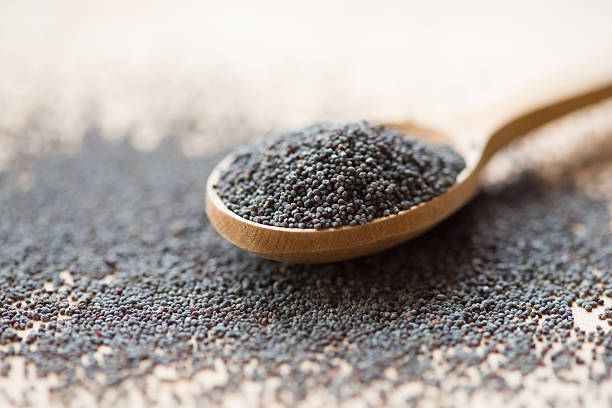
May contain pain-relieving compounds 
May contain pain-relieving compounds -
Particularly abundant in mono- and polyunsaturated fats, poppyseed oil may be good for your heart and skin. Unsaturated fat-rich diets may up to 17 percent lower your risk of heart attacks and stroke, according to research. It may be especially beneficial to substitute unsaturated fats for saturated fats in your diet. Remember that eating a diet high in omega-6 to omega-3 fatty acids may make you more susceptible to inflammation and illness. As a result, it may be preferable to refrain from regularly taking high amounts of omega-6-rich oils, such as poppyseed oil.
Additional study reveals that the lipids in poppyseed oil may aid in the healing of wounds and shield the skin against scaly sores. Your risk of heart disease may be reduced by using poppyseed oil. More research is required, however, it may also promote wound healing and prevent scaly skin diseases.
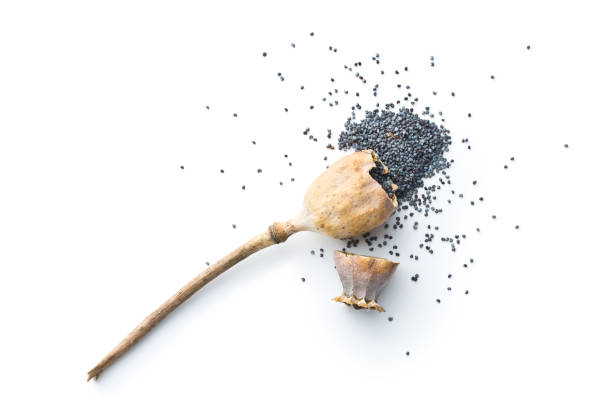
May boost heart and skin health 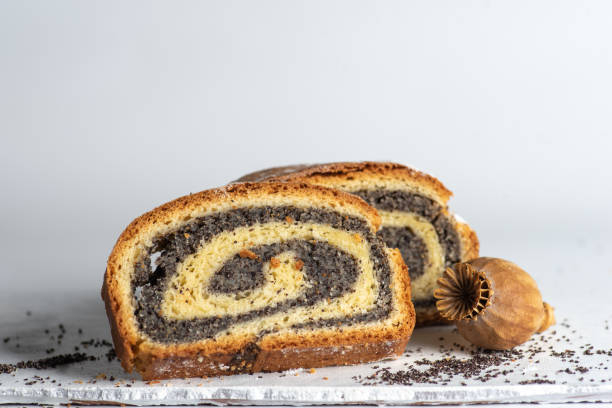
May boost heart and skin health -
Poppy seeds provide a natural source of alkaloids, which have a relaxing effect that can help with sleeplessness and neurological illnesses. Additionally, they contain a lot of magnesium, which has been associated with better sleep in terms of quality, quantity, and calmness. Poppy seeds can aid in metabolic regulation, which helps with sleep difficulties and insomnia. An excellent treatment to relax and get ready for bed is warm milk with poppy seeds and honey. The seeds can be ingested as well as used topically as a paste dressing to reduce edema and joint discomfort.
Fatty acids and volatile essential oils are found in poppy seeds. They are particularly abundant in oleic and linoleic acids, two crucial healthy fatty acids. Dietary fiber and oleic acid have been demonstrated to work together to reduce LDL (bad cholesterol) and raise HDL. Oleic has also been shown to boost energy expenditure (good cholesterol). A vital fatty acid called linoleic acid helps the body's natural capacity to repair wounds and increases hair oils. Poppy seeds include chemical compounds with plant origins that have antioxidant and disease-preventive qualities. Studies indicate that diets high in mono-unsaturated fatty acids, such as oleic acid, which is frequently included in Mediterranean diets, can aid in the prevention of coronary artery disease and stroke.

Beneficial for nervous disorders and insomnia 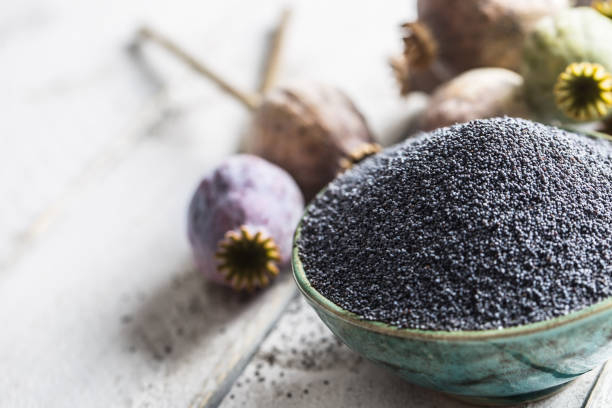
Beneficial for nervous disorders and insomnia








